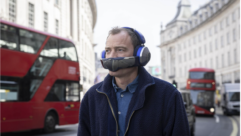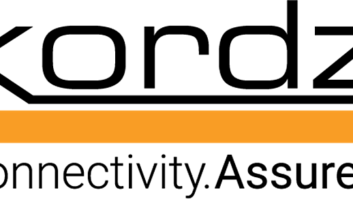

Saying the Right Thing
Feb 28, 2011 9:45 AM,
by Don Kreski
How to handle yourself in an interview.
What’s the point of a press campaign if not to engage a writer’s or editor’s attention?
Yet my own editor recently remarked, “You’d be surprised how often a source doesn’t have the information I’m asking for or doesn’t understand the publication.” If you’re going to ask the press to cover your company, you need to be ready when they want an interview.
The first thing to understand about any interview is that the press is always under a deadline. If a reporter calls, you need to make time for the call now, or if that’s truly impossible, call back later today or the first thing tomorrow. If the reporter’s deadline is Friday, it doesn’t help to call back on Monday. You’ve missed your chance and the efforts you’ve put in so far have been wasted.
It’s important, too, to be prepared for the interview, whether it’s on the spot or with a few days’ notice. You want to decide in advance what you most want the press to convey to their readers and be sure to convey that to the press.
“Make sure you’re ready with three top messages,” says Norman Booth, vice president of Parsippany, N.J.-based Coyne Public Relations. “They should be simple, clean messages that may be about your business, your product, or your expertise.”
Three and Only Three
These messages may come out of the elevator speech that you already have for potential clients, or they may be points you create to describe the project, product or service that was the topic of your story proposal or press release. Three is a magic number for Booth. “Most stories can’t carry much more than that,” he says. “Three points are easy to understand and remember.”
Your three messages should relate to one another, and you should write them down. “Start with an upper-level assertion or value proposition,” Booth says. “For example, ‘We are the number one supplier in the Northeast.’ The second statement drills down to a little more supporting detail. ‘The reason we’re number one is that we have the greatest client satisfaction.’” The third can be a call to action or a logical conclusion: “It only makes sense to do business with a company that’s so well established.”
It should be easy to work these messages into a conversation with a reporter. “Any question can be a bridge to what you want to convey,” Booth says. “‘How long have you been in business?’ ‘Well, we’ve been here for 25 years and have become the number one supplier in the Northeast.’ Of course, you should conclude the interview by recapping these messages as well.”
The Right Person
If you do have some time to prepare for the interview, be sure to ask the reporter what he or she wants to talk about. If you’re not the best person in the company to talk to, say so, and offer to set up the correct call. It can be helpful to ask the reporter to provide questions in advance, but not every reporter will do so, so don’t push too hard.
“It’s nice to give reporters something ahead of time,” Booth says. “We like to prepare a short biography that establishes your expertise and shows that you’re the right person to interview.” Booth also likes to send photos, including a high-res image of the person to be interviewed. “Hopefully it’s not too staged. It might show you in shirt sleeves, at work in a relevant environment.”
If your story is a project profile, review the time frame for the project, have an equipment list handy, gather high-res images of the finished system, and make sure the project manager or engineer is available to talk to the reporter.
Booth also suggests that you have contact information ready for one or more clients who are also willing to be interviewed. That will make the story more interesting. “There’s no better promotion than to have a customer talk about you or your product,” he says.
If you use a PR firm, they will probably want to be involved in the interview process, and their help can be valuable.
At Coyne, Booth says, account managers will help the interviewee brainstorm the points to communicate and help ensure that he or she has the information on hand that the reporter will need. If they can, Coyne people like to be on the phone during the interview. “It’s rare that we interject anything, but it can help to have a third ear, to make sure that questions and answers are clear and understood,” Booth says. “We also want to be there in case the reporter needs something that our client doesn’t have, whether it’s a chart, graph, or a piece of information. We write down the action items and make sure the work gets done.”
Saying the Right Thing
Feb 28, 2011 9:45 AM,
by Don Kreski
How to handle yourself in an interview.
Common Sense
You may worry about saying the wrong thing during an interview. “Most often reporters will be straightforward,” Booth says. “It’s very rare that the press will try to hoodwink you or say they want to ask about one thing then start asking about something else.”
That being said, you do need to use your common sense. Don’t say negative things about a customer or even a competitor. Don’t say anything you’d rather not see in print. “We do like to tell people, ‘Don’t speculate.’ If you just keep to what you know, you’ll be fine.”
The reporter may ask you to check the story once it’s written, but don’t expect that. “There are unwritten rules in the PR game,” Booth says, “and one is to respect the integrity of the reporter. Having an opportunity to review the story is rare in mainstream journalism. If we do get the chance, we don’t try to add anything but merely check that details are accurate.”
While it’s rare for a reporter to be hostile, “the best will be knowledgeable about the industry and they may ask questions that grapple with key issues,” Booth says. “I love to work with those who are going to challenge us, make us defend our suppositions. Those are the cases where it’s most important to get the right person on the phone, someone who is very knowledgeable and can speak to those issues.”
Assuming you do know what you’re talking about or can connect the right person to the reporter, preparation is crucial. Be ready with your three key points, have a client or two in mind for additional interviews, send photos in advance, keep reference material handy, and stick to what you know. With a little effort and common sense, the interview will go well.
Don Kreski is the president of Kreski Marketing Consultants, which offers marketing services to the AV industry. You can reach him at www.kreski.com/contact.html.










